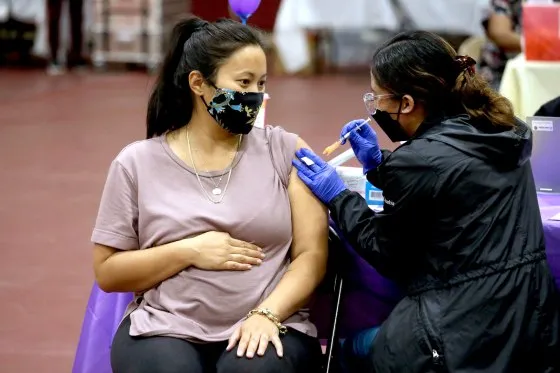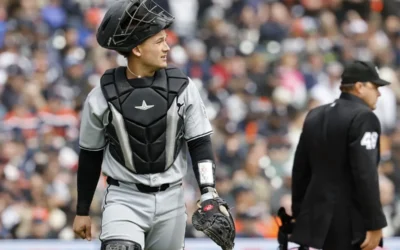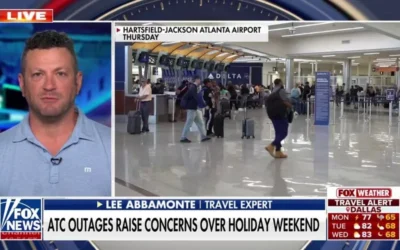CDC’s Shift in COVID-19 Vaccine Recommendations: A Closer Look at RFK Jr.’s Statements
Introduction
In a significant development in the ongoing saga of COVID-19 vaccination discourse, Robert F. Kennedy Jr., a prominent vaccine critic and public figure, has publicly supported the idea of halting COVID-19 vaccine recommendations for healthy children and pregnant women. The debate surrounding the safety and necessity of COVID-19 vaccinations has been contentious, filled with conflicting data and a spectrum of expert opinions. The repercussions of RFK Jr.’s stance and the CDC’s recent recommendations carry implications not just for public health policy but also for the broader conversation about vaccination.
The Historical Context of Vaccines and Children
Vaccination has undeniably played a pivotal role in controlling communicable diseases. Historical analyses indicate that vaccines have reduced incidences of severe diseases, leading to a dramatic decline in child mortality rates due to infectious conditions. In the context of COVID-19, the CDC initially recommended vaccines for all eligible age groups, including children, as a proactive measure against the virus and its potential complications.
Throughout the pandemic, health organizations have continuously amended their guidelines based on emerging scientific evidence. In the case of children, studies suggested that while they were less likely to develop severe symptoms from COVID-19, they could still carry and transmit the virus. This nuance reinforced calls for child vaccinations as a means to curb overall transmission rates.
RFK Jr.’s Position and its Influence
RFK Jr. has long positioned himself against the mainstream narrative surrounding vaccines, labeling them as potentially harmful and part of a broader narrative of pharmaceutical influence over public health policy. His recent statement suggests that the risk posed by COVID-19 to healthy children and pregnant women does not justify the vaccine’s administration. “The data shows that healthy children have a near-zero chance of severe outcomes from COVID-19,” he has argued, advocating for parental choice when it comes to vaccinations.
Interestingly, RFK Jr. is not just a vocal critic; he comes from a prominent political lineage, being the son of Robert F. Kennedy and the nephew of President John F. Kennedy. His platform garners significant attention, raising questions: How much sway does RFK Jr. hold in shaping public opinion on vaccines, particularly among skeptical parents?
The CDC’s Recent Recommendations
The Centers for Disease Control and Prevention (CDC) has encountered criticism and pressure from various fronts—proponents and opponents of vaccination alike—as it navigates scientific evidence while also attempting to maintain public trust. In recent communications, the CDC did indeed modify its guidelines for COVID-19 vaccinations, advising against routine vaccination for healthy children and pregnant women unless certain criteria are met.
This shift illustrates an evolving understanding of COVID-19’s impact on these specific groups. Pregnant women previously faced heightened risks during the pandemic, which led to initial recommendations advocating for vaccinations to protect maternal and fetal health. However, as research unfolded, new questions arose regarding the long-term impact of mRNA vaccines during pregnancy, prompting the CDC to reassess its approach.
Scientific Evidence and Public Opinion
Emerging studies have sought to gauge the efficacy and safety profiles of COVID-19 vaccines among various populations, including children and pregnant women. The data around children showed lower rates of severe illness, scarring the justification for universal vaccination within this demographic. However, expert opinions around this find a sharp divide between public health officials and critics.
Health professionals defending the vaccine recommend viewing childhood vaccination as part of a broader community health initiative, emphasizing that high vaccination rates can bolster herd immunity, thereby shielding vulnerable groups that cannot be vaccinated. On the contrary, those like RFK Jr. argue that the individual risk-benefit analysis of vaccination for children reveals an unfavorable scenario, especially given that adverse side effects, although rare, do occur.
The Implications of Decreased Recommendations
The CDC’s decision to scale back recommendations for COVID-19 vaccinations for healthy children and pregnant women may have significant implications, both in the short and long term. On the one hand, it could reduce anxiety among parents worried about potential vaccine side effects for their children. On the other hand, the reduction could lead to increased susceptibility to infection, especially if community transmission rates rise.
Furthermore, this change can have a ripple effect on vaccine hesitancy in broader populations. Parents who align with RFK Jr.’s viewpoint might latch onto this new guidance as validation of their skepticism towards vaccines in general, potentially undermining efforts to achieve herd immunity.
Public Response and Discourse
The public response to RFK Jr.’s assertions and the CDC’s revised recommendations has been markedly polarized. Social media platforms have erupted into debates, with parents sharing personal anecdotes, health data, and opinions on the best course of action. Advocates for childhood vaccinations worry that the amplified voices of critics could exacerbate existing health disparities among populations reluctant to vaccinate their children.
This increasing polarization around scientific data also raises questions about the efficacy of public health messaging. Efforts to counter misinformation, such as initiatives by health organizations to promote transparency and data accessibility, are crucial. Still, the rising dissent suggests that these strategies require robust reevaluation.
Conclusion
In conclusion, the recent pivot in CDC recommendations regarding COVID-19 vaccinations for healthy children and pregnant women, coupled with RFK Jr.’s vocal support for this adjustment, mark a significant moment in the public health narrative. While there are valid responses to concerns regarding vaccine safety, the implications of a reduced emphasis on vaccination for these specific demographics hold critical stakes for public health.
As the landscape of COVID-19 unfolds, it will be vital for public health officials to continue to weigh the research, public perception, and individual preferences in their ongoing effort to navigate such contentious ground. The underlying challenge remains: finding common ground amid divergent opinions that prioritizes the health and safety of our communities.







